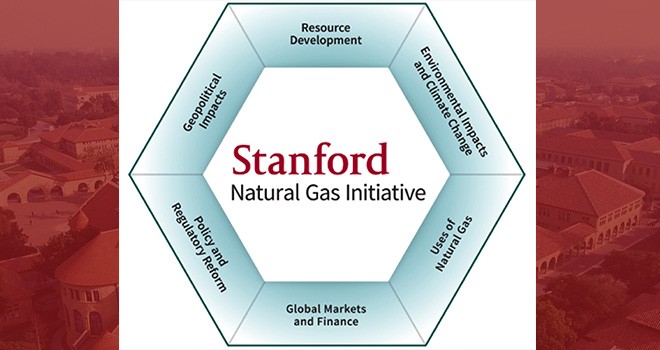
Stanford Launches Comprehensive Research Initiative on Natural Gas
In the transition to a low-carbon energy system, how can society use increasing supplies of natural gas to minimize greenhouse gas emissions, improve air quality, boost economies, and strengthen energy security? Stanford University’s new Natural Gas Initiative (NGI) will work to answer that question, as well as myriad scientific, technological, and policy questions that underlie it.
The new program will expand Stanford’s research on energy and the environment by focusing additional resources on the growing importance of natural gas. U.S. production has risen almost 50% in the past 10 years, and natural gas is anticipated to outpace all other fossil fuels in global demand. More than 35 professors and research staff from a dozen Stanford academic departments have already affiliated with the Natural Gas Initiative.
“If developed in a responsible manner, natural gas can be the critical transition fuel that reduces the environmental impacts of fossil fuels and keeps us on a path toward a decarbonized energy future,” said Mark Zoback, a professor of geophysics and NGI’s director.
